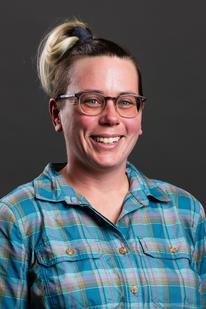
About
Organizational Development
At NRRI, Organizational Development focuses on improving NRRI’s capacity and performance by aligning its people, structure, metrics, rewards and development opportunities with its strategic plan and management processes. The process is long-range, ongoing and intentional, and focuses on building NRRI’s capacity to improve overall effectiveness.
In this role, Tiffany oversees:
Diversity, Equity & Inclusion Committee
Advisory body within the Office of the Executive Director that informs senior leadership on DEI decisions, and strives to continuously improve workplace culture through education, assessments and communication, while also creating a safe and supportive work environment.
Employee Engagement Action Team
Staff-led initiative to develop, recommend and help implement action plans in response to opportunities raised in employee engagement surveys and related dialogues.
Employee Champion
Individual and group discussions to evaluate workplace morale, identify problems impeding productivity and satisfaction, engage senior leadership to identify pathways for improvement, and create a safe space for confidential peer-to-peer consultation for all employees.
External Community Engagement
Identify and engage diverse populations by creating engagement action plans leveraging innovative activities and techniques in outreach and community science.
While Sprague supports all researchers at NRRI with community engagement, her specific background and training focuses on watershed and stormwater science. She focuses on transferring stakeholder research needs to fellow researchers at NRRI, facilitating teams to develop project proposals with comprehensive outreach plans, and writing both scientific and public-friendly reports. Valuable data collected by University researchers are effectively communicated to stakeholders and the public, giving these data a new life as they are integrated into resource management and decision making.
Sustainability
Moving the Institute to a low-waste facility through staff education, enhanced recycling programs, and collaborations across the U-system.
Recent Projects
Green Stormwater Infrastructure for North Shore Communities - Publication of guidebook for residents and small business on proper water management techniques
Green Infrastructure Code Audit - Build capacity of planners and managers in Duluth Urban-area communities to utilize green stormwater infrastructure through a code audit of local stormwater codes and ordinances
One Block at a Time - Enhance community resilience to natural disaster, floods and large storm events through Great Lakes-wide networks focused on green infrastructure implementation
CrowdHydrology - Water level citizen science for Duluth-area streams
Chronology - Stream photography citizen science
Education
- M.S., Water Resources Science; University of Minnesota Duluth, Duluth, MN; 2019
- Area of Emphasis: Watershed Management
- Minor: Applied and Computational Mathematics
- B.S., Biology; James Madison University, Harrisonburg, VA; 2009
- Area of Emphasis: Ecology and Environmental Biology
- Minors: Mathematics; Environmental Management


